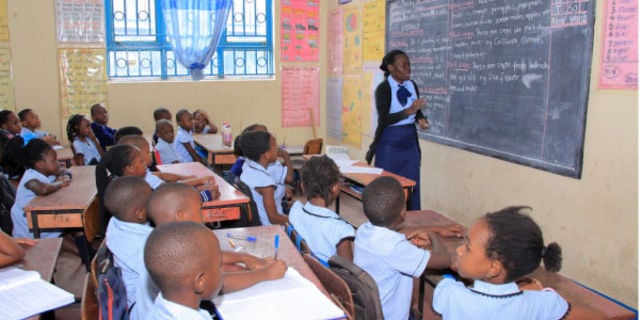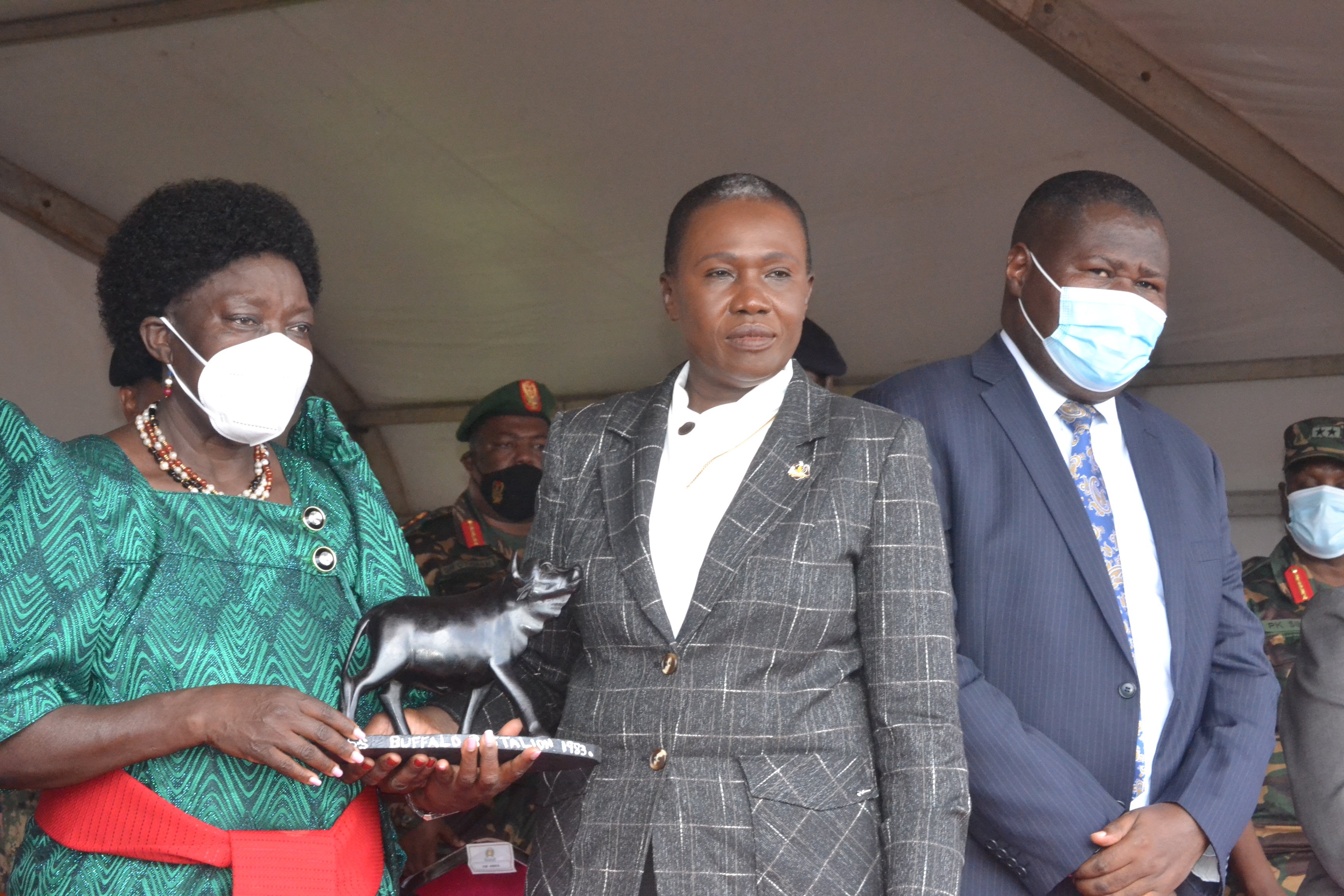Prime
Kiswahili subject to spike Uneb examination fees

A teacher conducts a lesson at Victorious Primary School, Kampala, in May. Uganda's Education ministry says it has already distributed Kiswahili textbooks to schools and trained teachers. PHOTO BY RACHEL MABALA
What you need to know:
- Addressing journalists at Uganda Media Centre on Thursday, Mr Denis Mugimba— the Education ministry spokesperson—revealed that the increase in the number of Primary Leaving Examination (PLE) pupils write from four to five will have financial implications.
Parents with learners in private primary and secondary schools will pay an extra examination fee to Uganda National Examination Board (Uneb) to cater for additional costs that will be incurred in administering the newly adopted Kiswahili language exams, the Ministry of Education has said.
The Cabinet on Monday resolved to include Kiswahili language in the primary and secondary School curriculum.
Addressing journalists at Uganda Media Centre on Thursday, Mr Denis Mugimba— the Education ministry spokesperson—revealed that the increase in the number of Primary Leaving Examination (PLE) pupils write from four to five will have financial implications.
Mr Mugimba said parents, who have been paying Shs34,000 as PLE fee, will now be paying Shs43,000. The government will pick the tab for learners in government primary schools.
“Whenever government comes up with a policy, it has implications and one of them is the financial implication on assessment. At primary level, the fifth subject will factor in additional Shs9,000 charged per subject,” Mr Mugimba said.
He added: “Parents will have to add this money for their learners in private schools and government will incur the one for learners in government schools.”
In the same regard, parents with students in Senior Four will have to pay an extra Shs13,000 for the Uganda Certificate of Education (UCE) examination. Senior Four learners will now pay Shs199,000 up from Shs86,000.
Meanwhile, Ms Grace Baguma— the executive director of the National Curriculum Development Centre (NCDC)—said teaching materials for both primary and secondary are available.
She added that once money is made available, they will print copies for all schools, both private and government.
In a related development, the government also revealed that more than 58,000 teachers have been passed out to teach Kiswahili language in primary schools. It added that nearly 700 were recruited last year for secondary schools.
The Uganda National Kiswahili Association (Chama Cha Kiswahili Cha Taifa Uganda) on Thursday lauded the Cabinet for its decision to approve the implementation of the 21st East African Community (EAC) summit directive in Uganda to adopt Kiswahili as an official language of the community.
The call came as the Kiswahili fraternity in Uganda joined the world to celebrate the inaugural International Kiswahili Day as declared by United Nations Educational, Scientific and Cultural Organisation (Unesco) member states in their 41st session on November 24, 2021.
Addressing journalists in Kampala, the association’s secretary general, Mr Benon Mukundane, noted the decision coupled with planned Kiswahili training and compulsory teaching of Kiswahili in schools is a step in the right direction.
He, however, urged the government to come up with affirmative action for Kiswahili development and establishment of guidelines for operationalisation of article 6(2) of the Constitution for Kiswahili being the second official Language.
They also called for the establishment of a Kiswahili Council to oversee the smooth implementation of the cabinet directive.




